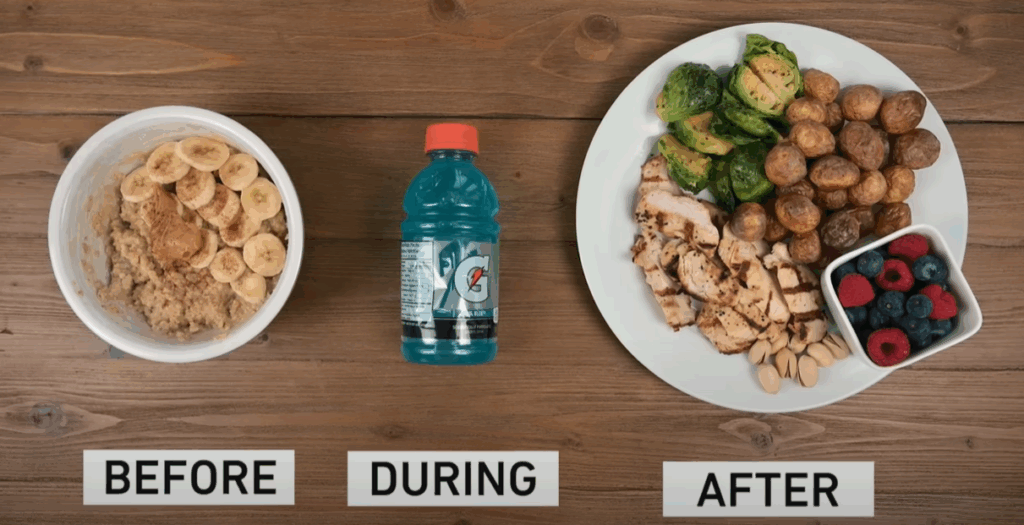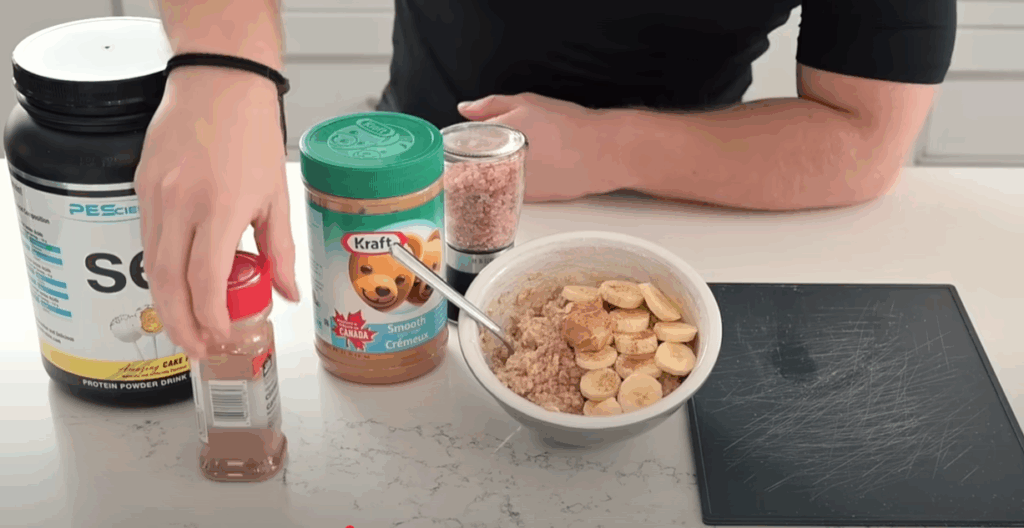What to Eat Before, During, and After Your Workout for Optimal Muscle Gains
If you’re serious about building muscle and improving your body composition, understanding how to fuel your workouts properly is essential. Nutrient timing—what you eat before, during, and after training—plays a crucial role in enhancing performance, accelerating recovery, and maximizing muscle growth.
While the old-school “anabolic window” concept has evolved over the years, modern research still supports the idea that strategic nutrient intake around your workout can make a noticeable difference, especially for those training intensely, dieting, or already lean.

Why Nutrient Timing Still Matters
The concept of peri-workout nutrition (peri = “around”) involves optimizing your intake before, during, and after training. While some early studies questioned the significance of post-workout meals, deeper analysis shows that nutrient timing does matter—just not in the rigid way once thought.
As long as your pre- and post-workout meals are spaced within about 4 to 5 hours of each other, you’re likely within the optimal muscle-building window. This becomes even more important if:
- You’re training in a calorie deficit,
- You’re doing high-volume resistance workouts,
- You’re already at a low body fat percentage (which reduces energy reserves).
Pre-Workout Nutrition: Fuel and Build
Your pre-training meal is arguably the most impactful one of the day for muscle performance. It does two main things:
- Provides energy for the training session (primarily through carbohydrates).
- Stimulates muscle protein synthesis by supplying amino acids (via protein intake).
Macronutrient Breakdown
Here’s a simple guide to structuring your pre-workout meal:
- Carbohydrates: ~1 gram per kilogram of body weight. Preferably from slow-digesting sources like oats, sweet potatoes, or whole grains, paired with a piece of fruit for quicker energy.
- Protein: ~0.4–0.5 grams per kilogram. A high-quality source such as whey, eggs, or lean meat is ideal.
- Fats: 0–20 grams depending on timing. Fat slows digestion, so the closer you are to training, the lower your fat intake should be.

Timing Your Pre-Workout Meal
Ideally, consume this meal 60 to 90 minutes before training. This gives your body time to digest and absorb nutrients without causing bloating or sluggishness. If you’re training within 30 minutes, opt for faster-digesting foods and lower total calories—like a whey shake with a banana.
Sample Pre-Workout Meals
- For a 175 lb (80 kg) male training in 60–90 mins:
- 80g oats
- 1 scoop protein powder
- 1 sliced banana
- ½ tablespoon peanut butter
- Cinnamon and a pinch of salt
- For a 120 lb (55 kg) female training in ~2 hours:
- 4 oz salmon
- 1 medium sweet potato
- Mixed greens salad with goat cheese
- Apple slices with cinnamon
- If you’re training within 30 minutes:
- Whey protein shake
- 1 medium banana
These meals aim to balance sustained energy with optimal digestion, enhancing your workout without digestive discomfort.
Intra-Workout Nutrition: When It’s Needed
Most people don’t need to eat during a workout, especially if they’ve had a good pre-training meal. However, intra-workout carbs can help under certain conditions:
- Training fasted (especially early morning),
- Prolonged workouts over 60–90 minutes,
- Dieting in a calorie deficit,
- High-level athletes trying to optimize every detail.
What to Take During Your Workout
In these scenarios, sipping a liquid carb source like Gatorade, coconut water, or a carb powder mixed with water can help maintain performance. A rule of thumb is about 0.5 grams of carbs per minute of training (i.e., 30g carbs for a 60-minute session starting at the 30-minute mark).
If you want a muscle-preserving boost, especially while training fasted, you can also add:
- 5–10g of essential amino acids (EAAs) or
- 10g of whey protein isolate for a fast-digesting amino acid source.
For dieters, even a small dose of 5–10g of carbs mid-workout can improve blood sugar and prevent early fatigue.
Post-Workout Nutrition: Refuel and Recover
Once your training session is over, it’s time to start the recovery process. While the post-workout “window” isn’t as short as once believed, the sooner you can get nutrients in—especially if your last meal was several hours ago—the better.
What Should Your Post-Workout Meal Include?
- Protein: Aim for 0.4–0.5 grams per kilogram of body weight. This replenishes amino acids and promotes muscle repair.
- Carbohydrates: Depending on your goals, 0.5–1.5 grams per kilogram of body weight is recommended. This helps replenish glycogen, especially if you’re training again soon.
- Fat: Keep it moderate (~10–20g). Fat slows digestion slightly, which isn’t an issue unless you’re at the edge of your 4–5 hour nutrient window.
Sample Post-Workout Meals
- For a 175 lb (80 kg) male:
- Extra-lean ground turkey
- Jasmine rice
- Light sour cream and shredded cheese
- A Sungold kiwi
- Mixed greens salad
- For a 120 lb (55 kg) female:
- 4 oz grilled chicken or tofu
- 300g baby potatoes
- Steamed brussels sprouts
- A handful of pistachios
- 100g of mixed berries
- For someone training fasted, with a delay before their next meal:
- Whey protein shake immediately after training
- 1–2 rice cakes
- 1 banana or small bunch of grapes
This snack buys you time before your next full meal while beginning the recovery process.

Final Thoughts on Nutrient Timing
Whether you train fasted or fueled, what matters most is getting the right nutrients within a reasonable time frame. Consistency, total daily protein, and adequate caloric intake still reign supreme—but strategic peri-workout nutrition can give you that edge in performance, recovery, and muscle development.
If you want to simplify your tracking, tools like MacroFactor (developed by experts and designed with athletes in mind) can help dial in your macros based on your individual needs and training goals.
Ready to take your gains seriously? Nail your nutrition before, during, and after your workouts and watch your progress skyrocket. Fuel smart. Train hard. Recover fully.



